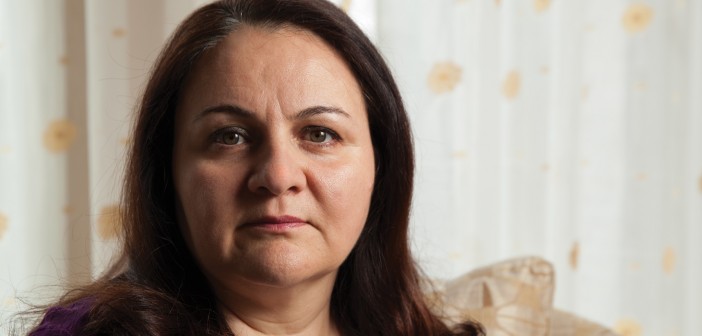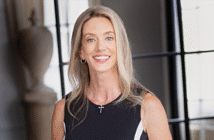The religion of Islam embodies a modest culture and lifestyle for both men and women. During activities, men and women remain separate from one another. They have prayer time at five intervals during the day. At the mosque, men traditionally pray in front of the women so they are not distracted by them, not as a sign of superiority, explains Dr. Mohammed Saleem, of the Flint Islamic Center. Muslims may avoid sustained eye contact when talking with a person of the opposite gender, which is a sign of modesty and respect. Women are encouraged to vote and may work outside of the home if they choose. “Men are responsible for providing for the family, but women are not prevented from working,” says Dr. Saleem, whose wife and daughters also have medical careers.
“Anything can be resolved without any act of violence. We can find a different way.”
Reem Salman, M.D.
Muslim men and women are often identified in public by their unique style of clothing. Salaam Tarakji, a teacher at the Flint Islamic Center, regularly wears a simple jilbab, which is an ankle-length, loose-fitting overcoat, and a hijab, or headscarf which covers her hair and neck. Though she explains that the Flint community is generally accepting and friendly, she has experienced unpleasant situations. “I encounter stares of condescension and pity, and I hear words of hate and bigotry directed toward me,” she says. “People will walk by and say, ‘Go back to your home’ and I’m thinking, ‘This is my home.’ When I travel, I am consistently selected for random security checks.”
At casual glance, Salaam may appear as a solemn Muslim woman who has accepted a restricted lifestyle devoid of opportunities and choices, but that depiction does not fit her. Salaam says she is very comfortable wearing her jilbab and headscarf and that it is her choice, not forced upon her by her religion as many assume. Women who decide to wear traditional clothing in public do not need to do so around immediate male family members. “There should be a form of modesty in society that I feel we’ve lost, whether in appearance or in our actions,” she explains. “When people meet me, the first thing they judge isn’t the outward appearance. They can judge me by the content of what I say and do.”
Reem Salman, M.D., of Flushing, chooses not to wear a headscarf but dresses conservatively. “I come from a family where it’s completely up to the woman to wear her hijab or not,” she says. Dr. Salman practices internal medicine and pediatrics in Owosso. She came to the U.S. from Syria in 1994 in hopes of improving her knowledge of medicine and trained at Hurley Medical Center. She says she fell in love, got married and decided to live in the Flint area. She and her husband are raising three children.
She recalls during her medical training being snubbed by some patients. “I was a foreigner with an accent and people refused to see me,” she recalls. Her Islamic faith is important to her, instilling positive values such as nurturing and loving others, and she finds it easy to fit prayer time in throughout the day. She enjoys the Flint area and is especially appreciative of her patients of other faiths who tell her they’re praying for her loved ones back home in Syria.
Dr. Salman considers the terrorists of ISIS and other groups to be totally unsupported by the Quran and that they do not really represent any religion. “This is the problem when it comes to the extreme of religion,” she says. “Anything can be resolved without acts of violence. We can find a different way.”














